If a person believes that carrots and sticks lead to productivity, no 2-day class and a certificate on the wall can change that. But those who seek to empower people and teams can become great scrum masters and servant leaders.
[featured-image single_newwindow=”false” alt=”Unknown | Team | Flickr” title=”Unknown | Team | Flickr”]Unknown | Team | Flickr[/featured-image]
In the comments section of my post “Help! The Scrum Master is the Impediment”, Darko asked that I cover servant leadership. Darko seems to also have experience with a scrum master who does not behave well and asked some great questions about the role:
- What is a servant leader?
- How does a scrum master serve their team as opposed to directing it?
- Where in practice does the scrum master meet their servant role – can you give concrete examples?
What is a servant leader?
The term servant leader came about in an essay by Robert Greenleaf title “The Servant as Leader”. In his essay, Greenleaf described a servant leader as “one who makes sure that other people’s highest priority needs are being served.”
He offered these question as a litmus test to servant leadership: “Do those served grow as persons? Do they while being served, become healthier, wiser, freer, more autonomous, more likely themselves to become servants?”
How does a scrum master serve their team as opposed to directing it?
The change in mindset necessary to become a servant leader is incredibly hard for a scrum master who comes from command and control background. There are a few changes in thinking that can help with this transition:
- Favor self-organization: Don’t make decisions for the team or assign their work, ask them how they will tackle the next sprint goal. And trust them to follow through.
- Enable self-management: Scrum teams self-manage their work and their practices. Rather than dictate how the team will deliver value back to their business partners, work to remove the organizational barriers to their success.
- Let teams fail: This is more difficult than it seems. Allowing a team to “fail” and learn important lesson that will pay off down the road is difficult. But sometimes it is necessary for the growth of the scrum team. When this does happen…
- Provide cover for your team: Your company/organization/business will not initially understand how your scrum team works. Coach up through the management chain so that “failure” and other experiments by the scrum team are encouraged, not punished.
Daniel Pink’s book “Drive” gives insights in to what motivates people and is the best argument against command and control that I’ve ever read. This is the book that project managers making the transition to scrum master should read – and then apply the lessons to their scrum teams.
Where in practice does the scrum master meet their servant role – can you give concrete examples?
A servant leadership minded scrum master should be a servant to their team every day. By challenging the team with a probing question during a sprint retrospective or by recommending a fist of five check to get everyone involved in a discussion, scrum masters are constantly on the lookout for opportunities to apply their servant role.
I remember a particular situation as a scrum master where I had to work with a design manager who was against scrum and agile. He insisted on design reviews prior to any code being written and would mandate technical solutions that the scrum team did not agree with.
I was obligated by my role to try to coach this person in order to make sure that the scrum team was empowered to manage their work – within the bounds of accepted corporate standards. The discussions were tense and difficult. But the team came first. Eventually, we were able to work out modified design rules for scrum teams and we went on to have many successful sprints.
Situations like that are risky. I was dealing with a member of the management team and had to walk a very fine line in order to help the scrum team and keep my job. Ken Schwaber’s warning was constantly on my mind: A dead scrum master is a useless scrum master.
But things did – and tend to – work out.
Geoff Watts wrote and amazing book on scrum masters as servant leaders called “Scrum Mastery: From Good to Great Servant Leadership”. He goes in to a lot more detail about the habits and behaviors of great scrum masters. It is an excellent resource for any scrum master looking to improve.
Thanks to Darko for asking the questions about servant leadership. I hope that I’ve shed some light on this important topic. If you have a question or would like to see an agile topic covered please send me a message or leave a comment below. I look forward to hearing from you.
[reminder]What do you think it takes to become a great scrum master and servant leader?[/reminder]
